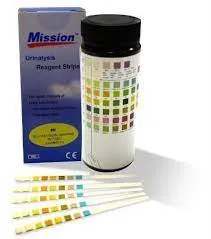Nov . 13, 2024 04:35 Back to list
stool antigen test for h pylori
Understanding the Stool Antigen Test for H. pylori A Comprehensive Guide
Helicobacter pylori (H. pylori) is a type of bacteria that can infect the stomach lining, leading to various gastrointestinal issues such as gastritis, peptic ulcers, and even gastric cancer. Given its prevalence and potential complications, early detection and treatment of H. pylori infections are crucial. Among the various diagnostic methods available, the stool antigen test has gained popularity due to its non-invasive nature and reliable results. This article explores the stool antigen test, its advantages, limitations, and its importance in diagnosing H. pylori infections.
What is the Stool Antigen Test?
The stool antigen test is a laboratory test that detects the presence of specific H. pylori antigens in a patient's stool sample. This method is based on the principle that when the body is infected with H. pylori, it produces antibodies that target the bacteria, and these antigens are excreted in the stool. The test is relatively straightforward a patient provides a stool sample, which is then analyzed in a laboratory.
Advantages of the Stool Antigen Test
1. Non-invasive and Convenient One of the most significant advantages of the stool antigen test is that it is non-invasive. Patients can simply provide a stool sample without the need for more invasive procedures, such as endoscopy or biopsies, making it a comfortable option.
2. High Accuracy The stool antigen test boasts a high sensitivity and specificity for diagnosing H. pylori infections, often reaching above 90%. This means that the test is reliable in correctly identifying those who are infected.
3. Cost-Effective Compared to other diagnostic methods, such as breath tests or endoscopies, the stool antigen test is generally more affordable. This can make it a more accessible option for many patients.
4. Suitable for Follow-up The stool antigen test can also be used to confirm eradication of H. pylori after treatment. Patients can take the test several weeks after completing therapy to ensure that the infection has been successfully cleared.
stool antigen test for h pylori

Limitations of the Stool Antigen Test
While the stool antigen test has many advantages, it is also essential to be aware of its limitations
1. Timing of the Test The stool antigen test is not recommended immediately after treatment for H. pylori. It is best performed at least four weeks after completing antibiotic therapy, as the presence of antibiotics can lead to false-negative results.
2. Potential for False Negatives or Positives Although rare, false-negative and false-positive results can occur. Factors such as the timing of the test, the patient's age, and the presence of other gastrointestinal diseases may influence the accuracy of the results.
3. Requires Laboratory Facilities The stool antigen test needs to be conducted in a laboratory setting, meaning patients may need to travel to a healthcare facility for testing.
Importance of Accurate Diagnosis
Accurate diagnosis of H. pylori infections is essential for effective treatment and management. Left untreated, H. pylori can lead to chronic inflammation of the stomach lining and increase the risk of serious conditions such as ulcers or gastric cancer. Therefore, employing reliable diagnostic methods, such as the stool antigen test, plays a critical role in preventing these complications.
Conclusion
The stool antigen test for H. pylori is an essential tool in the diagnosis and management of H. pylori infections. Its non-invasive, cost-effective nature, combined with high accuracy, makes it a preferred choice for many healthcare providers. Understanding the benefits and limitations of this test can empower patients and healthcare practitioners alike in making informed decisions regarding gastrointestinal health. As awareness of H. pylori and its implications continues to grow, utilizing effective diagnostic tests remains vital in safeguarding patient wellbeing and preventing the complications associated with H. pylori infections.
-
Dengue NS1 Rapid Diagnostic Test Kit
NewsMar.07,2025
-
Dengue NS1 Rapid Diagnostic Test Kit
NewsMar.07,2025
-
Dengue NS1 Rapid Diagnostic Test Kit
NewsMar.07,2025
-
Transferrin Rapid Test Cassette Tumor Marker TF Card
NewsMar.07,2025
-
Malaria Pf Pan Rapid Diagnostic Test Kit
NewsMar.07,2025
-
malaria pf / pan ag rapid test
NewsMar.07,2025

